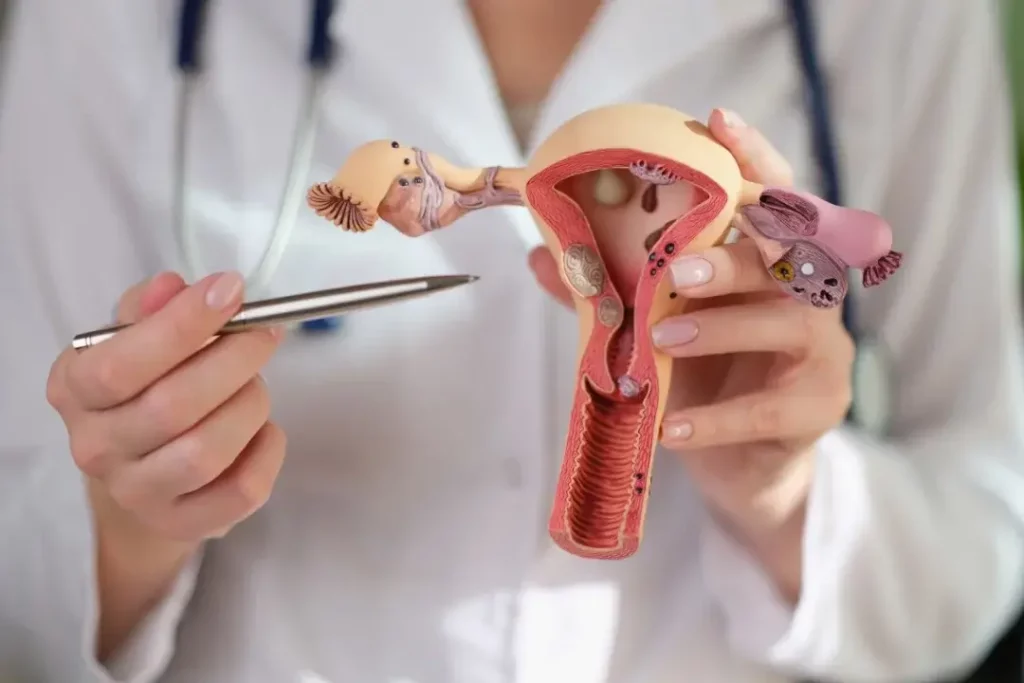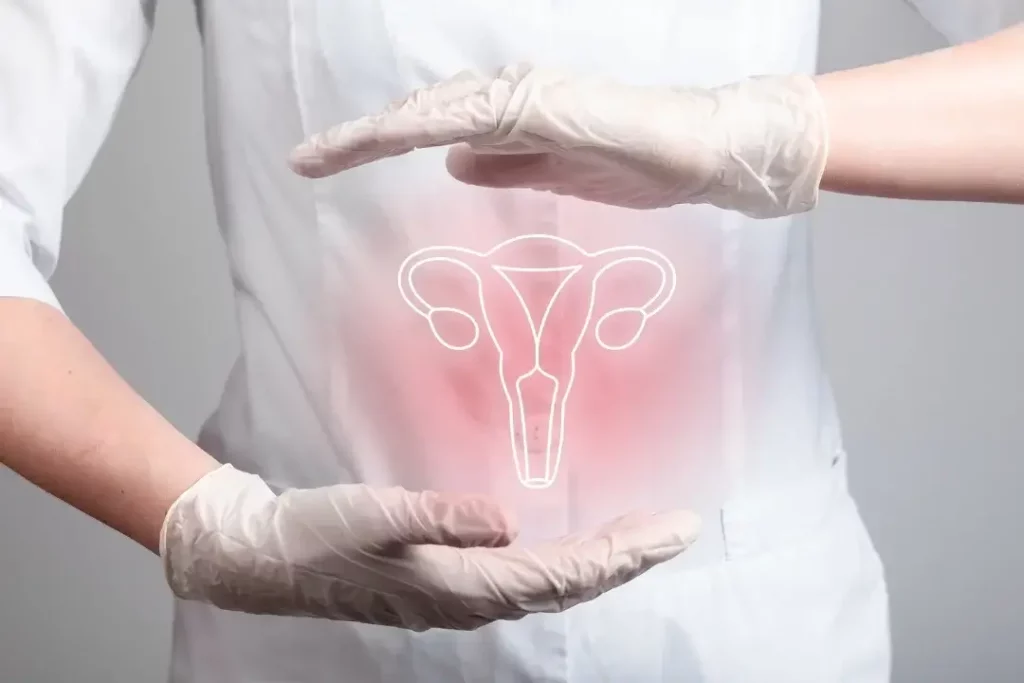
Medical Tourism for Eid: Overseas Pakistani Treatment Guide
The Overseas Pakistani’s Guide to Medical Tourism for Eid: Save Money, Heal Faster, Be Home for What Matters For Overseas Pakistanis Who Want World Class
The Major And Most Common Reasons You Must Need To Know!
The Silent Struggle Of Pakistani Women :
A Deep Dive into the Multifaceted Factors and Root Causes of Female Infertility

Female infertility is a subject that often goes unexplored in public discourse and carries a lot of misconceptions. In Pakistan, infertility affects a significant percentage of women yet remains vastly underrepresented due to cultural and societal attitudes. In this blog, you will learn about
What Causes Female Infertility?
What are the signs of infertility and how can you treat infertility in a proper way? Through this, we hope to bridge the knowledge gap, decrease the social stigma connected to infertility, and encourage women to seek help when they need it. So let’s begin.

Female infertility is the inability of a woman to conceive naturally after trying for 12 months without success in the absence of any known reproductive issues or to maintain a pregnancy to term. It can be attributed to various factors such as hormonal imbalances, structural irregularities, or lifestyle choices. By debunking misconceptions and understanding the complexities of female infertility, we can work towards more comprehensive solutions.
Infertility affects a significant number of women in Pakistan, but due to a lack of awareness and social stigma, many cases remain undiagnosed, unreported, or untreated. It is estimated that around 14 to 20% of married couples in Pakistan face difficulty in conceiving, with female factors being responsible for around 40 to 50% of the cases. This underscores the importance of creating awareness and encouraging open discussions about female infertility, to better comprehend and address the issue.
Female infertility differs from male infertility in terms of causes, symptoms, and treatment options. While both men and women can experience infertility, their unique reproductive systems present specific challenges and requirements for interventions.
What Causes Female Infertility? So the answer is that there can be numerous causes for female infertility in Pakistani women; sometimes, there might be more than one factor contributing at a time. The following are some major causes:
Imbalances in various hormones produced by the pituitary gland, hypothalamus, or ovaries can disrupt a woman’s menstrual cycle, ovulation, or implantation process, making it challenging to conceive or maintain a healthy pregnancy.
PCOS is a prevalent hormonal disorder affecting Pakistani women, characterized by enlarged ovaries containing tiny cysts. Women with PCOS often experience irregular periods, weight gain, and excessive hair growth, which can contribute to infertility. Endometriosis Endometriosis is a painful condition wherein the tissue lining the uterus grows outside the uterus and affects other pelvic organs. Scar tissue formation, inflammation, and blocked fallopian tubes caused by endometriosis can impair fertility in affected Pakistani women.
Uterine fibroids are noncancerous growths within the uterine wall and can distort the uterine cavity, interfere with embryo implantation, or contribute to miscarriages, affecting a woman’s fertility.
Blockage or damage to the fallopian tubes can prevent sperm from meeting the egg or hinder an embryo’s movement towards the uterus, causing infertility. Infections like pelvic inflammatory disease (PID) are common causes of blocked fallopian tubes among Pakistani women.
Secondary infertility refers to the inability to conceive or maintain a pregnancy after previously giving birth. This type of infertility can occur due to various causes, such as scarring from previous childbirth, age-related problems, or newly acquired infections or health conditions.
A sedentary lifestyle paired with an unhealthy diet, smoking, or unmanaged stress can affect a woman’s fertility by contributing to hormonal imbalances, weight issues, and reduced egg quality. Focusing on maintaining a healthy lifestyle helps in improving the chances of conception.
Age is a significant factor that affects fertility, and delays in marriage due to education, career, or personal reasons are becoming increasingly common in Pakistani women. Genetic factors, inter-family marriages, and consanguinity also contribute to female infertility in Pakistani women.

Common Symptoms and Signs To provide the necessary assistance in conceiving, it is essential to recognize the signs and symptoms related to female infertility. Some common indications include:
A thorough diagnostic process is crucial in identifying and addressing the causes of female infertility effectively. Some tests and examinations used to diagnose infertility in Pakistani women include:
A detailed discussion of the patient’s medical history, lifestyle choices, menstrual cycles, and any previous evaluations or treatments helps in identifying potential causes and planning an appropriate diagnostic approach.
During a physical examination, the gynecologist evaluates the patient’s overall health and performs a pelvic exam to assess their reproductive organs. A pelvic ultrasound enables detailed imaging of the pelvic organs to identify any structural irregularities or abnormalities.
Blood tests give insight into hormonal imbalances that may affect fertility and help in determining if a woman is ovulating normally. Hormones that are commonly tested include follicle-stimulating hormone (FSH), luteinizing hormone (LH), prolactin, thyroid-stimulating hormone (TSH), anti-Müllerian hormone (AMH), and sex hormones (estradiol and testosterone).
An HSG is a procedure in which a contrast dye is passed through the cervix, and X-ray images are taken to assess the uterine cavity and the fallopian tubes’ openness. This helps to identify issues like blockage, scarring, or structural abnormalities that might be affecting fertility.
Laparoscopy is a minimally invasive surgical procedure that allows the gynecologist to visually examine the pelvic organs and identify any issues that might be contributing to infertility. It can be particularly helpful in diagnosing cases of endometriosis or unexplained infertility.
Successful treatment depends on the accurate identification of the root cause and may involve a combination of lifestyle modifications, medications, and surgical interventions. Here are some common treatment options for female infertility in Pakistani women:
To try and minimize the risk of female infertility, Pakistani women can take the following preventive measures:
In conclusion, female infertility in Pakistani women is a complex, multifaceted issue that warrants attention, understanding, and support from all stakeholders. By raising awareness, debunking misconceptions, and providing comprehensive and personalized care, we can help affected Pakistani women find the answers to what causes female Infertility and how they can tackle it. Provides them comfort, and hope they need in their fertility journey. Through this blog, we have aimed to offer a valuable resource for Pakistani women to better comprehend their fertility challenges, identify symptoms, seek appropriate treatment, and follow preventive measures. It is crucial that we continue the conversation surrounding female infertility, empower women with knowledge and support, and work together to eradicate the taboos associated with the subject.
Kidney stones, in and of themselves, are unlikely to cause female infertility directly. However, if the kidney stones lead to recurrent urinary tract infections, pelvic infections, or inflammation, these conditions may potentially cause damage to the reproductive organs, thus impacting fertility. If you suspect any impact on your fertility due to kidney stones or infections, it is crucial to consult with a qualified gynecologist for expert advice and assistance.
While stress alone may not be the sole cause of infertility in females, there is evidence to suggest that excessive stress can contribute to hormonal imbalances, irregular menstrual cycles, and negatively impact overall reproductive health.
Some common signs and symptoms of female infertility include irregular menstrual cycles, absence of menstruation (amenorrhea), painful or heavy periods (dysmenorrhea), pelvic pain or discomfort, unexplained weight gain or loss, and hair loss or excessive hair growth. However, self-diagnosing infertility is not recommended.
There can be a genetic component to female infertility, with certain genes and inherited traits potentially impacting a woman’s fertility. While not all cases of infertility are hereditary, instances involving conditions like polycystic ovary syndrome (PCOS), endometriosis, or premature ovarian failure may have genetic links. If a close relative has faced fertility issues, it is recommended to consult with a gynecologist to discuss your own fertility health and any potential genetic risks.

The Overseas Pakistani’s Guide to Medical Tourism for Eid: Save Money, Heal Faster, Be Home for What Matters For Overseas Pakistanis Who Want World Class

PCOS & Ramzan: The Hormone Reset Month Your Body Has Been Waiting For When You’re Fasting, Praying and Secretly Hoping Your Hormones Finally Cooperate ⏱

Can Fasting Help You Conceive? The Science of Autophagy Understanding How Smart Nutrition and Strategic Fasting Can Support Your Fertility Journey Naturally ⏱ Read Time:

Fasting & Pregnancy Reality Check: The Trimester-Wise Truth Every Expecting Mother Must Know Before Ramadan A deeply practical, doctor informed guide for mothers balancing faith,

Before Ramadan Arrives The Silent Health Step Many Expecting Mothers Regret Skipping For caring moms to be who want to protect their baby while honoring

Week 40 of Pregnancy: The Final Countdown When Every Sensation Feels Like “Is This It?” You made it. This is not just another week but
Please provide your details below, and we will contact you after you schedule your appointment.